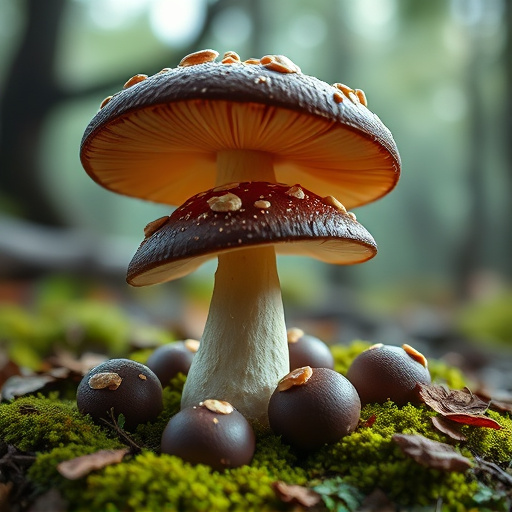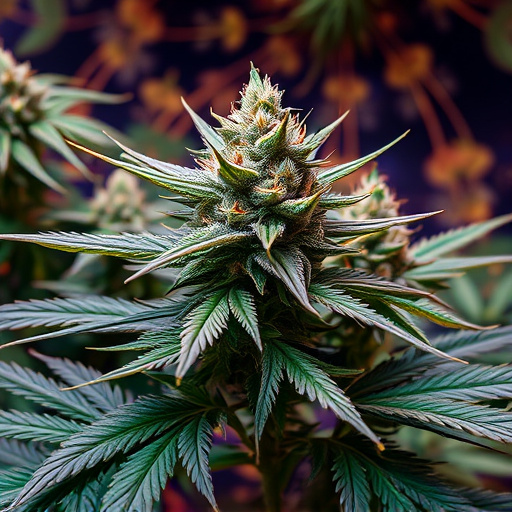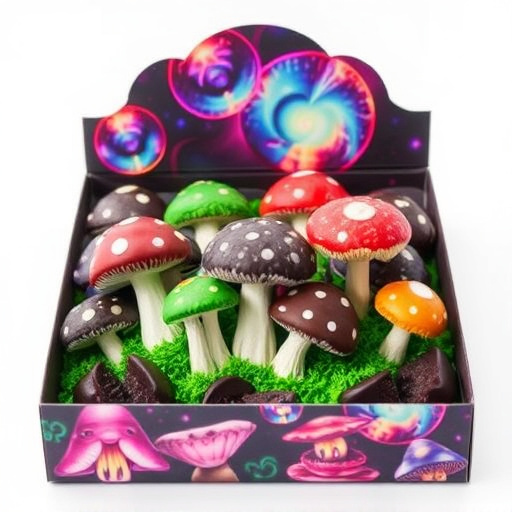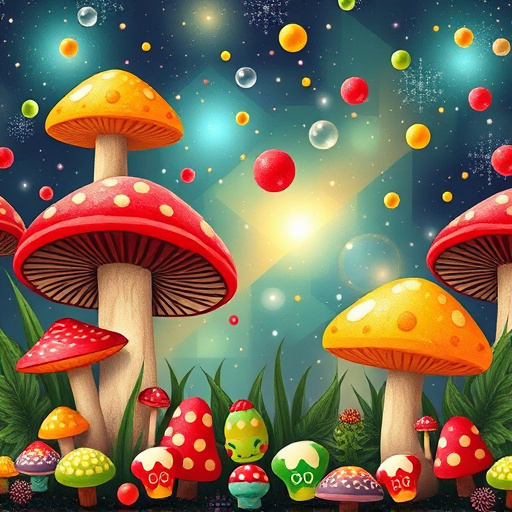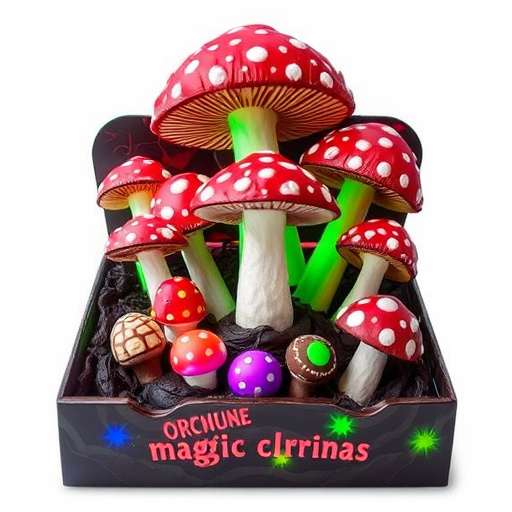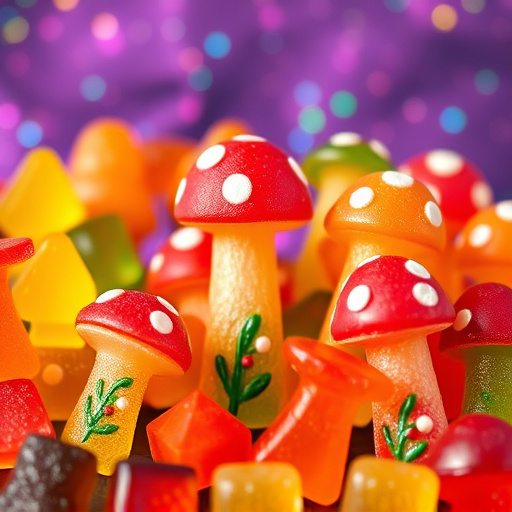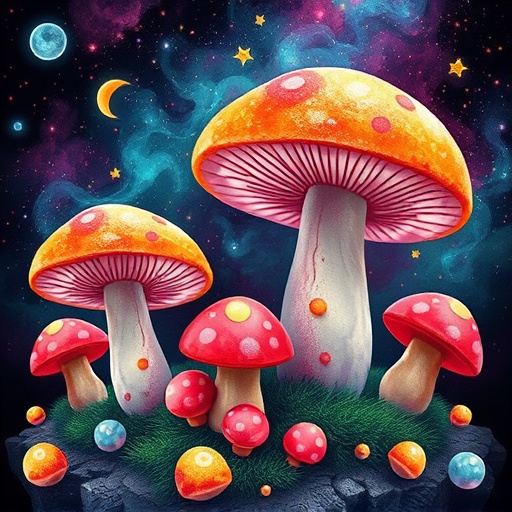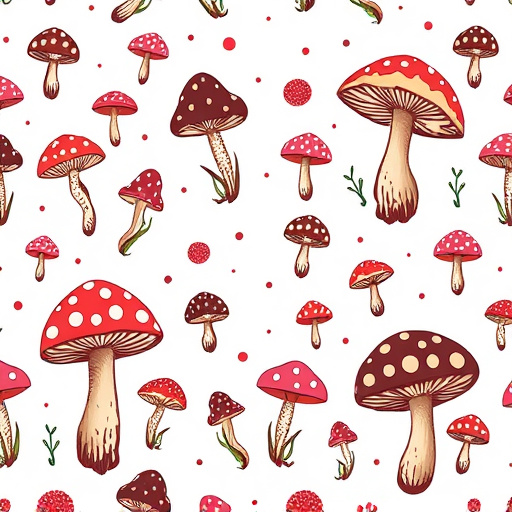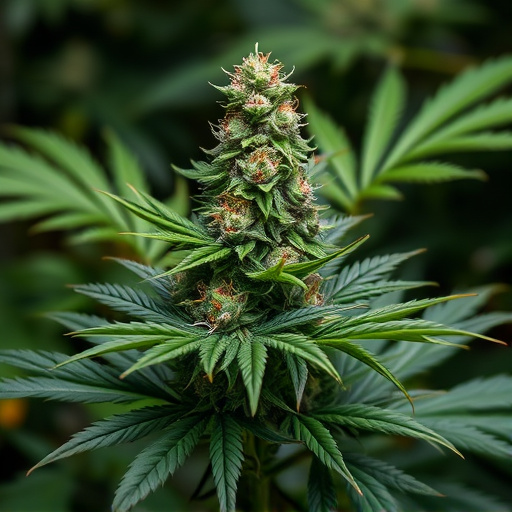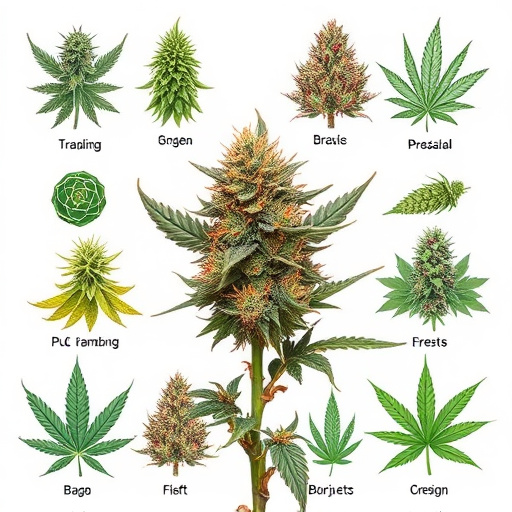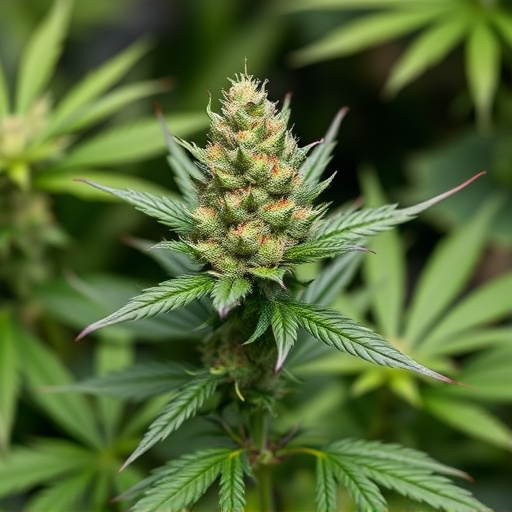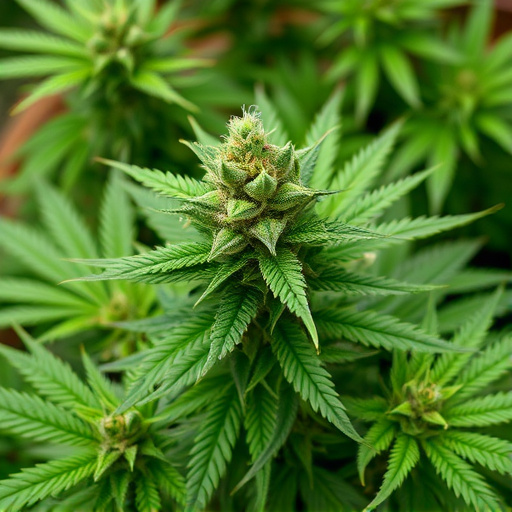Medicinal cannabis strains interact with brain receptors, influencing dopamine and serotonin levels crucial for mood, motivation, and pleasure. While THC boosts dopamine release linked to euphoria, it also binds to serotonin receptors, offering potential therapeutic benefits for anxiety and depression. CBD, non-intoxicating yet potent, increases serotonin levels, suggesting balanced treatment options for mental health disorders without traditional medication side effects. Understanding these complex interactions is vital for maximizing medicinal cannabis benefits while minimizing risks.
Discover the intricate relationship between cannabis and your brain’s chemical messengers, dopamine and serotonin. This article explores how medicinal cannabis strains, with their carefully balanced compounds, can interact with these neurotransmitters to offer therapeutic effects. By understanding the impact of cannabis on dopamine and serotonin systems, we unlock insights into its potential as a natural remedy for various conditions.
- Understanding Dopamine and Serotonin: The Brain's Chemical Messengers
- The Impact of Cannabis on Dopamine and Serotonin Systems
- Medicinal Cannabis Strains: Balancing Neurotransmitters for Therapeutic Effects
Understanding Dopamine and Serotonin: The Brain's Chemical Messengers
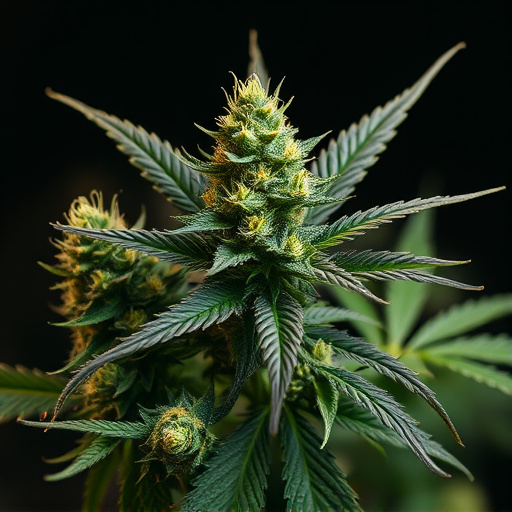
In the intricate ballet of brain chemistry, dopamine and serotonin stand out as key players in regulating mood, motivation, and pleasure. Dopamine, often referred to as the ‘feel-good’ neurotransmitter, is responsible for transmitting signals between nerve cells, contributing to feelings of reward and reinforcement. It plays a pivotal role in motivating us to seek out rewarding experiences, from enjoying a delicious meal to pursuing personal goals. Serotonin, on the other hand, influences our mood, sleep, and appetite, acting as a kind of ‘brakes’ on impulsive behavior. Imbalances in these neurotransmitters have been linked to various mental health conditions, making understanding their functions crucial.
Medicial cannabis strains have gained attention for their potential effects on dopamine and serotonin systems. Certain compounds found in cannabis, such as THC and CBD, interact with receptors in the brain that regulate these neurotransmitters. For instance, THC can bind to dopamine receptors, leading to increased release of dopamine, which may contribute to the euphoric feelings often associated with cannabis use. However, the relationship is complex; while some strains may boost dopamine activity, others might have a more nuanced impact on serotonin levels, offering potential therapeutic benefits for conditions like anxiety and depression without the side effects of traditional medications.
The Impact of Cannabis on Dopamine and Serotonin Systems
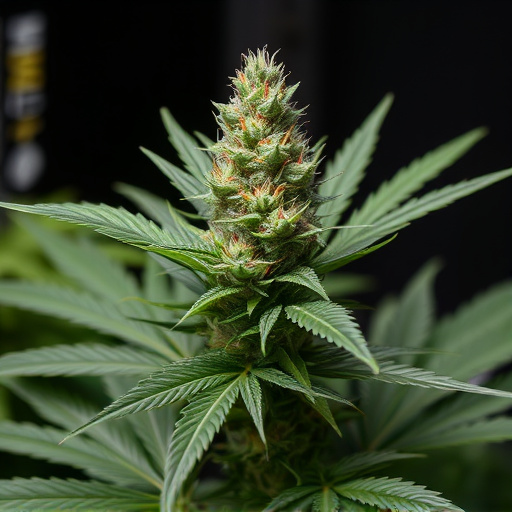
Cannabis has a complex relationship with the brain’s dopamine and serotonin systems, which play pivotal roles in reward, mood, and cognitive functions. While it’s often associated with pleasure and euphoria, the impact of medicinal cannabis strains on these neurotransmitters is nuanced. Research suggests that certain cannabinoids in cannabis, like THC and CBD, can interact with receptors in the brain’s reward system, leading to increases in dopamine release—a key player in motivation, pleasure, and addiction.
However, the effects on serotonin are less straightforward. Serotonin influences mood, appetite, and sleep, among other things. Some studies indicate that cannabis can stimulate serotonin release, potentially offering therapeutic benefits for conditions like depression or anxiety. Yet, other research proposes that chronic cannabis use may disrupt serotonin systems, leading to imbalances associated with various mental health issues. Understanding these interactions is crucial for harnessing the potential of medicinal cannabis strains while mitigating risks.
Medicinal Cannabis Strains: Balancing Neurotransmitters for Therapeutic Effects
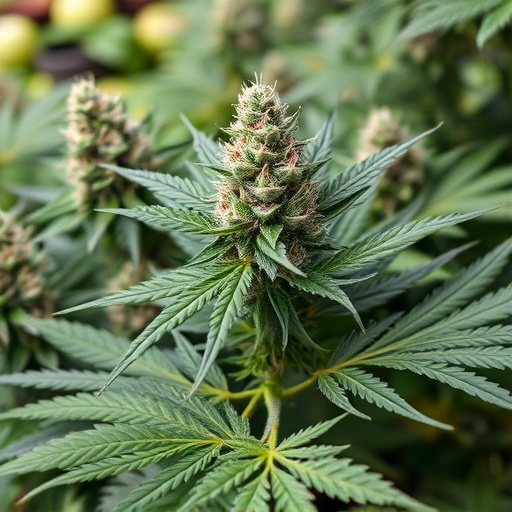
Medicinal cannabis strains have gained attention for their potential to balance neurotransmitters like dopamine and serotonin, offering therapeutic effects for various conditions. These strains contain specific cannabinoids, such as THC (tetrahydrocannabinol) and CBD (cannabidiol), which interact with our endocannabinoid system, playing a crucial role in regulating mood, cognitive functions, and neural communication.
THC, known for its psychoactive properties, can stimulate dopamine release, enhancing reward-related behaviors. However, it also binds to serotonin receptors, suggesting a complex interplay between these neurotransmitters. CBD, on the other hand, is non-intoxicating and has been linked to increasing serotonin levels, potentially reducing anxiety and depression. Certain medicinal cannabis strains are cultivated for their high CBD and low THC content, aiming to provide a balanced approach to treating mental health disorders while avoiding the psychoactive effects associated with THC.
Cannabis’s effects on dopamine and serotonin systems offer a promising glimpse into its potential as medicinal cannabis strains. By understanding how these neurotransmitters regulate mood, reward, and cognitive functions, we can appreciate the complex interplay between cannabis consumption and brain chemistry. Further research is essential to unlock the full therapeutic potential of medicinal cannabis strains, providing alternative treatments for various conditions that impact dopamine and serotonin levels.
